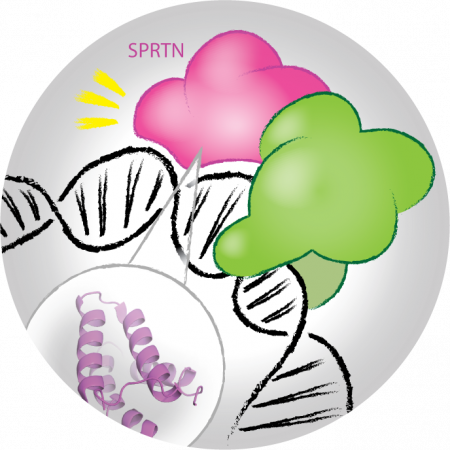
Spartan (SPRTN) is a mammalian metalloprotease that resolves DNA-protein crosslinks (DPCs), thus removing replication fork barriers and allowing cells to tolerate replication stress (Lopez-Mosqueda J et el., 2016). Mice with homozygous null alleles die very early during embryonic development. In humans, mutations in the SPRTN gene result in Ruijs-Aalfs syndrome, a segmental progeroid syndrome with an increased risk of hepatocellular carcinoma.
In our group, our aim is to investigate the mechanism of DPC repair by SPRTN in detail, as well as to understand the pathophysiology and molecular mechanism underlying cancer and aging-related morbidities. We attempt to achieve these goals by applying different cutting-edge technologies in structural biology, cell biology, proteomics and in vivo functional studies using mice mutants. We aim to translate such research discoveries into the development of novel small chemical molecules that can later be used to treat cancer and premature aging diseases.
 STRUCTURE
STRUCTURE CRISPRi
CRISPRi PROTEOMICS
PROTEOMICS MICROSCOPY
MICROSCOPY CANCER
CANCER NEURODISEASE
NEURODISEASE